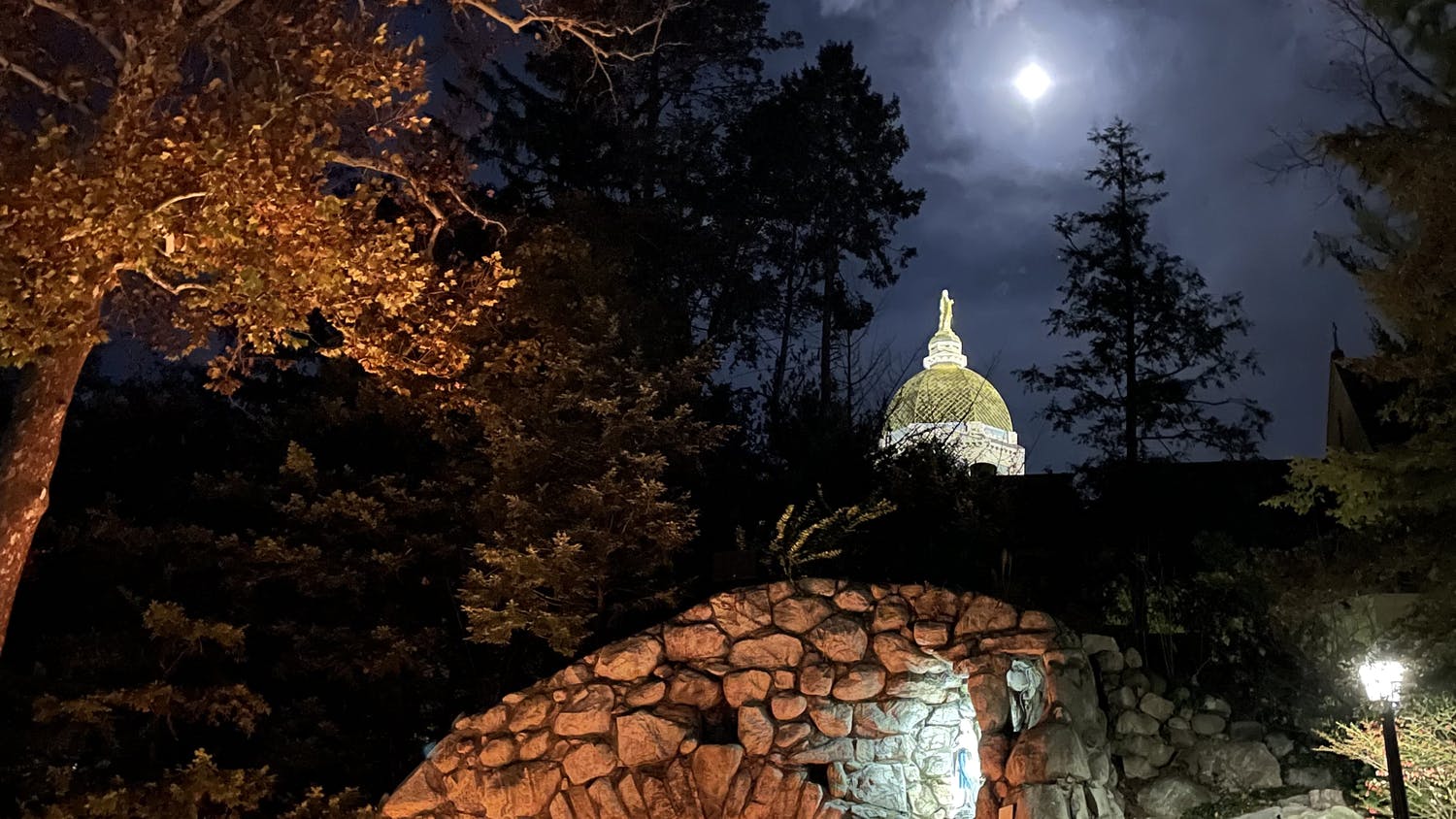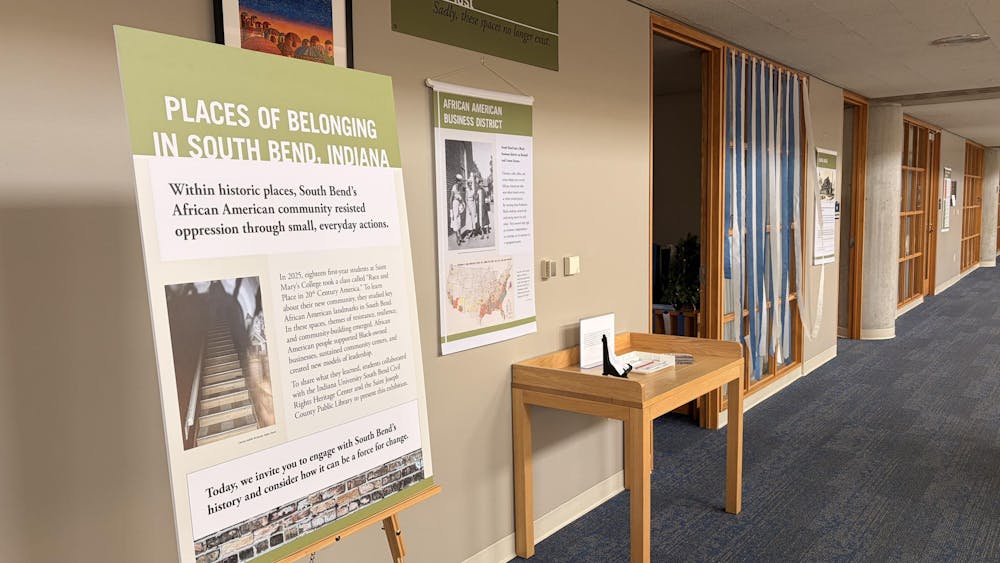Notre Dame’s student government Department of Sustainability teamed up with Campus Dining and Campus Ministry to implement Beef Free ND, an initiative that encourages students to go beef free for Lent.
The initiative was started by senior Alexander Kuptel, the director of the policy subcommittee within the Department of Sustainability. Kuptel, a flexitarian who eats mostly vegetarian, said he has always been concerned about the sustainability of the meat industry, and the beef industry in particular.
Sophomore and director of the department of sustainability Avery Broughton discussed why it is important to highlight the environmental impacts of beef, not meat in general.
“It was really important to focus on beef because saying ‘get rid of meat’ is just such a big thing and overwhelming to a lot of people,” Broughton said. “Beef has one of the highest carbon footprints and environmental impacts out of the meat options that you can have.”
As cited in the Beef Free ND pledge, The New York Times explains that beef production creates four to eight times the gas emissions of pork, eggs or chicken per gram of protein.
The pledge also states that meat packing is one of the most dangerous jobs, and red meat consumption has been identified as a “probable carcinogen” by the World Health Organization.
Addressing these problems, the dining halls are incorporating beef alternatives into breakfast, lunch and dinner meals every Monday and Wednesday during Lent to encourage people to try meat alternatives and sign Beef Free ND’s pledge, Kuptel said. Students who sign Beef Free ND’s pledge can enter a raffle to win a spot at one of two family style dinners featuring beef alternative meals prepared by dining hall chefs.
Beef Free ND is not Notre Dame’s first initiative to implement meat alternatives. Cheryl Bauer, director of Campus Dining’s supply chain and sustainability, said the school has been serving meat alternatives for at least seven years.
In addition, Bauer worked with Kuptel and the Department of Sustainability last spring to launch the Meatless March initiative. The initiative encouraged students to stop eating red meat for lunch throughout the month of March. One hundred and seven students pledged to follow the initiative, Broughton said.
This year, Kuptel wanted to do something bigger, so the Department of Sustainability reached out to Campus Ministry. While Beef Free ND is similar to the Meatless March project, this year’s initiative targets a larger group of people — those who celebrate Lent.
“I think a big audience that we’re trying to reach is people for whom faith plays a big role in their lives because I think that's kind of an underserved audience in sustainability,” Kuptel said. “We figured that they would appreciate the point of view we’re bringing, and so we changed the focus of the campaign.”
Despite targeting religious students, Beef Free ND is not the same as Campus Dining’s decision not to serve meat on Fridays during Lent. Bauer explained that the dining halls serves no meat on these days as part of the University’s Catholic identity.
“It is doctrine of the Church that anyone 18 to 65 does not partake in sustenance from animals that walk the earth [on Fridays],” Bauer said. “I don’t think it’s up to us to make that designation if we should change that. We are Notre Dame. We are a Catholic Institution, so we follow that doctrine.”
While Notre Dame dining halls will likely continue to be meat free on Fridays during Lent, there has also been discussion of continuing initiatives that are similar to Beef Free ND in the future. Bauer said she has had conversations with students who have expressed interest in adopting it beyond the Lenten season, and she hopes that it will be student led to ensure it is something that the student population still wants.
The Department of Sustainability hopes that students — Catholic or non-Catholic — remain interested in the initiative because of its environmental impact.
“It sort of connects religiosity and your personal beliefs if that’s something that people are interested in,” Broughton said. “But either way, no matter where you stand religiously, we have to make personal changes within our lives because of climate change, and its impacts on us.”
Read More
Trending









